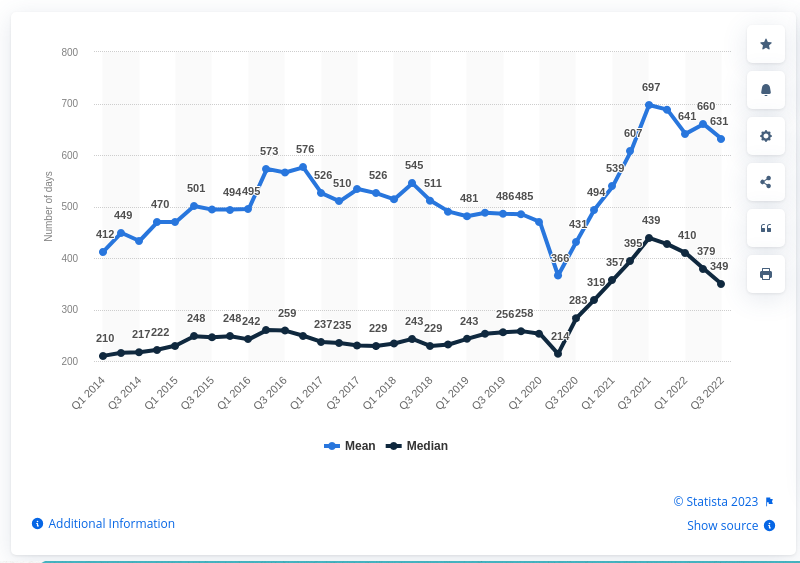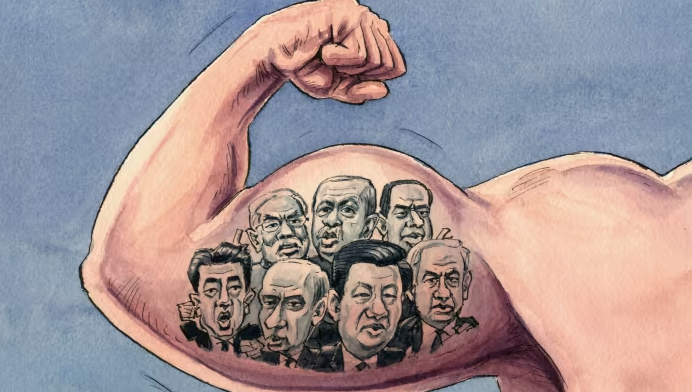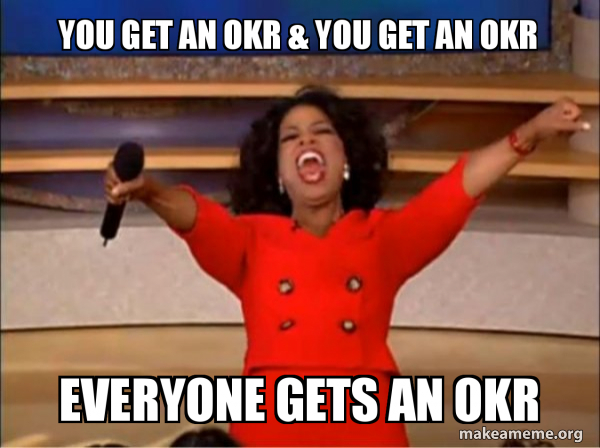
Principal Agent Considerations in the Public Sector
The principal-agent relationship in the public sector is governed by a complex framework of laws, regulations, and policies.
In the public sector, the principal-agent relationship is a fundamental concept that refers to situations where one entity (the principal) delegates authority or tasks to another entity (the agent) to act on its behalf. This relationship has unique considerations in the context of government and public administration.
While I've had limited exposure working in the public sector, I have had the pleasure of living and working in Singapore for the past 12 years and experiencing, with easy complacency, the joy of;
-
Applying for work permits with the MOM
-
Filing my taxes with IRAS
-
Updating my particulars with the ICA
-
Highlighting Municipal improvements with the Ministry of National Development through their #OneService App
With this background context, I now come to the main topic of my essay around principal-agent problems in Government. For the uninitiated, the principal-agent problem refers to the "principal" who may be the owner of a company and the "agent", the employee of a company. The principal-agent problem describes how incentives should be aligned for both principal and agent to get equivalent outcomes by way of, for example, a contract.

-
All residents?
-
Citizens?
-
Resident citizens?
-
Tax paying, resident citizens?
-
Beneficiary citizens?
-
Voting citizens?
-
Other segments?
Democracy follows that almost every eligible person in most of the above groups, receives a vote. Now whether they choose to exercise it or not, to play a part in the political process or not, and to what extent is debatable of course. Some groups develop political influence through consensus from employers with large workforces, or unions, or in older times, Guilds or Clans also were a way of providing a voice to these groups. Leaving aside instances of plutocracy and lobbying, how do the principals (citizens? tax payers? others?) ensure that their interests are considered by their agents (politicians and civil servants).
How do democratic nation leaders and representatives listen to their citizenry in a dynamic way? One way is through consensus building which indeed takes time. Many employ spin doctors and behavioral insights teams) consultancies to help convey a narrative. Some of these work well such as SMRT and some of these, not so well such as BREXIT.
Here, it is important that there is a balance of leadership and servant leadership with the assumption that the elected are accountable in detail, within reason and where practical to the electorate. That the electorate are being listened to and that the balance is fair. YouGov and FiveThirtyEight analyse much data from surveys, but how does one make sure that the surveys are;
-
Well crafted << open ended enough so that the questions do not imply the response
-
Well implemented << administered across the correct sample population
-
Effected << that the survey results are concise as possible and that the actions for the agent are clear and part of their KPIs
This leads us on to another topic. Say for example you are a shareholder in Tesla or Proctor and Gamble. You are the principal and the CEO is your agent. Now you don't have time to monitor the CEO daily or even at all given your shareholding so a group of investors band together and nominate someone to the board of directors of the company. This board then, on behalf of the principal (you) (we hope) works to hold the CEO to some KPIs which may be related to;
-
Corporate Social Responsibility
-
Profits and Share Prices
-
Others
So while CSR is not so directly measurable, there are KPIs around this that can be considered, read McKinsey's report on ESG for more.
Profits and share prices on the other hand are more directly measurable and this is how the market votes (or speculates) on the CEOs performance). If the share price goes up, then they "must have" (read as may have) done a good job and conversely, if the share price falls they "must have" (again read as may have) done a bad job.
Family owned businesses are different in that the patriarch/matriarch or siblings/cousins have their own views on how the company should be run. The family may split the divisions amongst themselves, taking the profits and managing their own businesses independently. Or for example in the case of BioRad, Ford and WalMart, assign an agent to run the company on their behalf, while each keeping a seat on the board and giving themselves time for other pursuits. Google and Microsoft, while not family owned, are businesses where the owner/founders nominated an agent to run the company on their behalf, leaving them, the owner/founders free to take on other pursuits.
So we have talked a little about how KPIs are developed and passed in a corporate structure, but what about in the public service?
Voters typically elect a party based on their observations of the party's cabinet and leadership with the expectation that if these good people came to power then they would take care of the voters interests be it related to these or others;
-
Defence
-
Health
-
Education
-
National Development
-
Home Affairs
-
Social and Family Development
-
Sustainability and the Environment
The expectation is that the party voted in will continue to consider the voters interests. What happens when the appointee is beholden to the interests who helped them come to power in the first place such as SPACs, Business Interests and Lobbyists? Are these groups the political equivalent of Institutional Investors in the Private Sector? Why is it called a Plutocracy in the political space but Capitalism in the commercial domain? How do we ensure the interests of citizenry are aligned along a one man, one vote concept while also considering the varying needs amongst the electorate?

One could argue that, the interests with the biggest wallet have the most to lose/gain so should have a commensurate voice, while this may be true in the commercial world, I'm not so sure this would be considered judicious in the political space.
Perhaps the interests with the largest voice, for example the union leaders, or the ones most connected, surrounding the decision makers should be listened to and risk being accused of cronyism..
So again, we come back to the question of how governments should be measured;
-
Peace and Happiness
-
Productivity
-
International Rankings
-
Resident Feedback
-
Others?
This is the crux of my essay: how might we nominate a supervisory board for a public service? https://en.wikipedia.org/wiki/Supervisory_board. How might we conceive, develop, agree and implement a set of processes or mechanisms to craft a set of goals that citizenry and elected officials might use as a guide to ensure that their interests are being affected. Each department or ministry will certainly have different goals and objectives. For example, education may have its goals linked to those of manpower and urban development may its goals linked to those of taxes and so on and so forth.
Taking these many experiences and learnings from the corporate world over the past twenty years and trying to relate them to the public service is something I can't help contemplate.
To be sure, public services are NOT as profit/revenue/growth driven as companies are. Nor are they likely to be bought out or IPO as I had the pleasure of being subject to.
There are parallels though, with outsourcing being a notable example. If a department is unable, or sees it inefficient to build capability themselves they may outsource this to others see Military and Manufacturing Outsourcing: Not All Guns and Roses as an example. Therein lies the problem. The citizenry have nominated their elected officials to take care of them, the elected officials have delegated to various departments and those various departments have then delegated to various vendors using contractual levers and KPIs. Each stage of delegation further adds friction and the potential for misalignment of principal/agent KPIs.
Would we see each department publishing their mission and values to live each day by, for example IRAS;
-
The leading revenue authority in the world.
-
A partner of the community in nation-building and inclusive growth.
-
A dynamic team of competent and committed people.
Would this then be adhered to on a daily basis with constant reminders on employees` screensavers and branding around the office or heaven forbid a daily national anthem?
In addition, the sheer complexity of layers between the electorate, ministry, agency, employee and vendors makes definition of KPIs impossible by design and in some cases is subconsciously intentional.
Some employers intentionally have a small full time workforce so that the layers between their principal and the agents are as narrow as possible. However, if the agent has appointed a contractor or vendor to implement a solution are there laws in place to prevent the agent from taking on a role with the vendor? In some cultures for example, Amakudari is expected, in others this is implicit Role call: the former ministers who found private sector jobs whereas in other countries this is disincentive in positive and sometimes not so positive ways.
The question is, at what point are the incentives aligned? Some organisations implement long term incentives to discourage this behavior as well as annual attestations that their leadership team have no conflicting interests see the Stop Trading on Congressional Knowledge (STOCK) Act for an example of the opposite.
Myself, having completed the Chartered Financial Analyst program which places a 20% weight on Ethics which for me, was an important part of the program I firmly believe that educating principals and building mechanisms to consider principals feedback in a balanced, timely and objective manner can only help to improve the services for all.
-
CODEX
-
GoBusiness
-
National Digital Identity
-
E-Payments
-
LifeSG
-
Smart Nation Sensor Platform
-
Punggol Smart Town
-
Smart Urban Mobility
-
Society including Education, Sports, Art and Youth
-
Government
-
Economy
"The world is changing. Unless we change with it, we will fall behind. Singapore must stay with the leaders to attract talent and business, to live up to our own expectations of what we ought to be and can be."
LEE HSIEN LOONG, Prime Minister of Singapore
 |
 |
Trending
-
1 Jocko Willink's Inspirational Life & Net Worth
Aaqil Ashraf -
2 How Art Shapes Culture and Reflects Human Experience
Luke Fitzpatrick -
3 Meet Felix Williams and Maria Arthuer: The Parents of World Class Winger Nico Williams
Felix Yim -
4 Kai Cenat's Dad and the Enduring Public Interest
Aaqil Ashraf -
5 London Tube Stations Closed as Workers Stage Strikes
Mihir Gadhvi











Comments